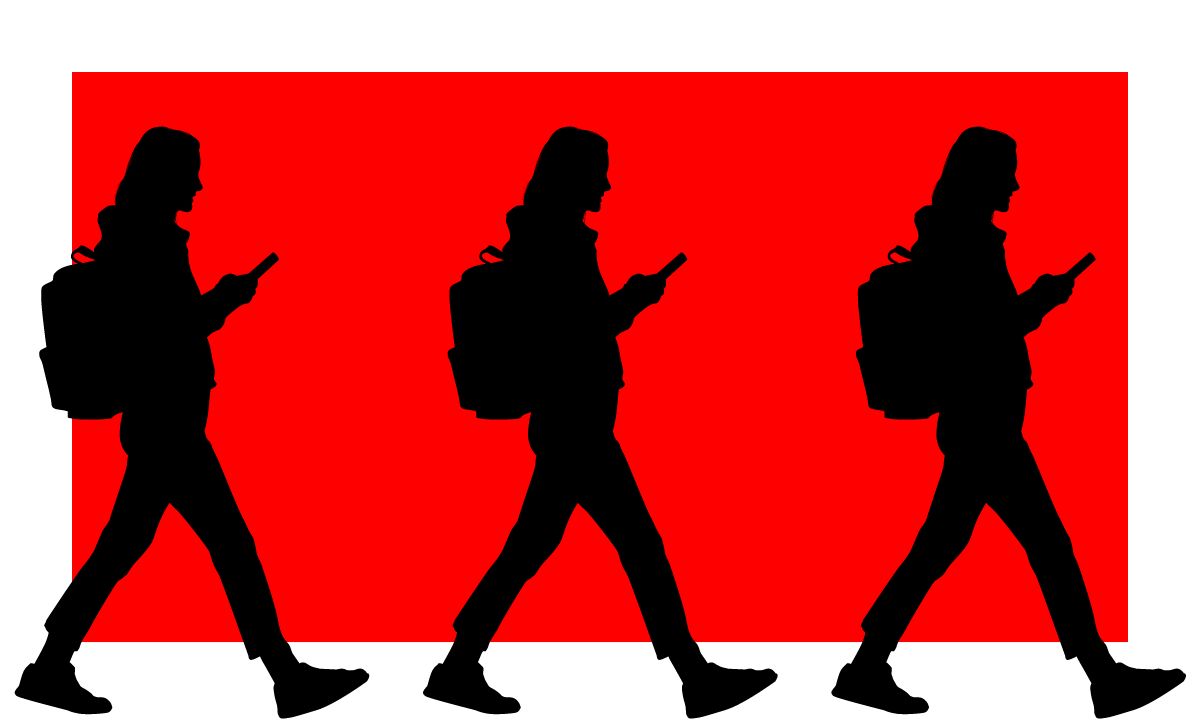NYC Parents Sound Off About Plan to Ban Cellphones in Schools
Adams: Social media addiction, student mental health, anonymous nastiness online, teachers as smartphone cops: why families say a ban is a good idea.

Get stories like this delivered straight to your inbox. Sign up for The 74 Newsletter
In a recent ABC News interview, New York City Schools Chancellor David Banks confirmed reports he is considering banning cellphones in schools as early as this September.
Gov. Kathy Hochul had earlier announced she’d introduce a bill during the January 2025 legislative session to ban smartphones in schools. The bill would permit phones capable of sending and receiving texts, but not those with internet access.
Objections to allowing K-12 students to use their phones in school stress their addictive nature. Hochul has already signed the Stop Addictive Feeds Exploitation (SAFE) For Kids Act, ordering social media companies to ban addictive feeds for those under 18.
Currently, Florida and Indiana ban cellphones in the classroom, while Ohio directs districts to draft their own policies for “cutting down” on cellphone use and Alabama “strongly encourages limits.” Virginia Gov. GlennYoungkin issued an Executive Order on July 9, instructing his Department of Education to come up with “guidance for public school divisions to adopt local policies and procedures establishing cellphone-free education.” Spokane, Washington, announced its ban July 10, and the Kansas state Board of Education is considering one as well.
Would this be the right move for America’s largest school district? We asked NYC parents to weigh in, and the responses were nearly unanimous.
Brooklyn Mom Lena raved, “I am so unequivocally for the cellphone ban, I can barely contain my enthusiasm. It is insane to me that there are schools in which children are allowed to carry the world’s most addicting distraction in their pocket all day. As full-grown adults, we are suffering from our inability to stop looking at our devices and constantly consuming media in a format we are barely evolved enough to handle — and we want to give that same problem to children without fully formed brains, who already lack the ability to exhibit impulse control?”
“With access to nonstop videos and internet, they have forgotten how to keep themselves occupied,” lamented fellow parent Jessica F. “My son claims there’s nothing to do if he can’t play Minecraft. It has become an obsession.”
With multiple studies demonstrating a connection between heavy social media use and depression, anxiety, loneliness and suicidal ideation, the majority of parents we heard from were thrilled to know there might soon be a limit on in-school smartphone use.
“Having their phones at lunch keeps kids, especially socially awkward ones, from interacting with new people,” contributed parent A.F. “They use phones as a crutch and withdraw from socializing. I look forward to my high school-aged daughter being forced to socialize.”
“Although face to face doesn’t make for easier girl drama,” an anonymous mom admitted, “access to quick responses leads to more drama. A lot is said behind a screen that might not have been said face to face.”
Research has also demonstrated that children learn better and with deeper comprehension when reading on paper rather than on screens.
Dad M.V. said, “I would go a step farther and ask that teachers revert to giving homework assignments on paper, not on computers. Yes, computers are more convenient for teachers and students. But they pose similar addiction and distraction problems.”
Carrie C. recognized the extra burden policing devices would place on educators.
“I don’t think it’s a good use of teachers’ time or intellect for them to be the ones who have to enforce putting your smartphone away,” she wrote. “But I wouldn’t use that as a reason to shrug your shoulders and conclude that it’s not worth trying to make improvements when possible.”
For mother of three Sophia McShane, however, a ban on phones is unacceptable.
“I’ve had it with the [city Department of Education] and their constant changes that don’t benefit the children,” she raged. “My eldest goes to school on his own and picks up his siblings from school. A phone is a necessity. The DOE should stick to teaching these kids how to read and write. They’re failing at that but want to focus on phones. It’s ridiculous.”
Travel and safety are the most prevalent arguments for why a school cellphone ban is more dangerous than the troubles caused by phones.
But Kate L. doesn’t buy it. She argued that, “If (parents) need to contact their child for non-emergency reasons, do so before or after school or during lunch.”
Brooklyn’s Lena went further, saying, “The idea that children need to be immediately accessible to parents all day long is absurd. My middle schooler commutes roughly 40 min on the subway. He has a ‘stupid’ phone in order for me to be in touch with him or him with me to and from school or in case of emergency. If, God forbid, there was an emergency, I have no doubt I could get in contact with him during the day by calling the school. If the argument is, well what if there is a school shooting (again, God forbid), then I think we are trying to solve that problem with the wrong device.”
National polls have run the gamut from 72% of high school teachers opposing cellphones in the classroom to 70% of parents against a ban.
If the largest school district in America goes through with Banks’ cellphone moratorium, would that finally accumulate enough research and evidence to guide definitive policy for the entire country?
The views expressed here are those of the author.
Get stories like these delivered straight to your inbox. Sign up for The 74 Newsletter

;)
